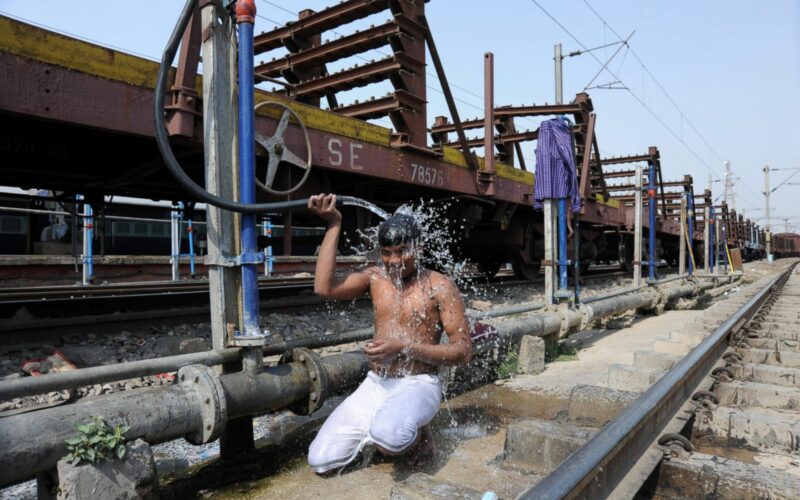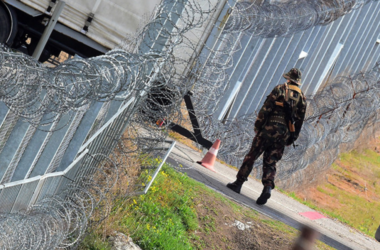At least 15 people have died in northern and central India over the past 24 hours due to heat-related ailments as temperatures continue to soar. The severe heatwave has caused multiple fatalities and a rise in hospital admissions across various regions.
In Odisha’s Rourkela region, ten deaths were reported at a government hospital on Thursday, according to authorities who spoke to Reuters news agency. Other heat-stroke related deaths have been recorded in the states of Bihar, Rajasthan, and Jharkhand, as well as the national capital, Delhi.
The scorching heat coincides with India’s general election period, with results set to be declared on June 4. Mahendra Kumar, the district magistrate of Bhojpur in Bihar, reported that three election officers and a policeman succumbed to heat stroke in the city on Thursday. Despite medical facilities being available at all centers, the extreme temperatures proved fatal. Kumar added that approximately 30-40 individuals were admitted to a local hospital due to heat-related conditions.
Hospitals in affected regions are seeing a spike in admissions as people suffer from heat-related ailments. In Delhi, a laborer died from heat stroke while receiving treatment at a hospital on Thursday. The National Centre for Disease Control in India describes heat strokes as “life-threatening,” with a mortality rate ranging from 40 to 64%.
For the past two weeks, northern, central, and parts of western India have endured relentless heat, with temperatures consistently around 45-46°C, and even reaching 50°C in some areas. The extreme heat has led to severe water and electricity shortages, increased fires, and the use of drones to monitor forest fires in Jammu and Kashmir.
Delhi and its surrounding regions experienced record-breaking temperatures nearing 50°C last week. Social media has been flooded with videos of residents scrambling for water from tankers, and many parts of the capital are dealing with frequent power cuts. Officials are investigating whether the recorded temperature of 52.9°C in Mungeshpur on Wednesday was due to a sensor malfunction at the nearby weather station.
A study published in The Lancet medical journal found that India saw a 55% rise in deaths due to extreme heat between 2000-2004 and 2017-2021. The study also noted that exposure to heat caused a loss of 167.2 billion potential labor hours among Indians in 2021.
While heatwaves are common in India during summer, experts warn that they are becoming longer, more intense, and frequent, posing increasing risks to health and livelihood.








